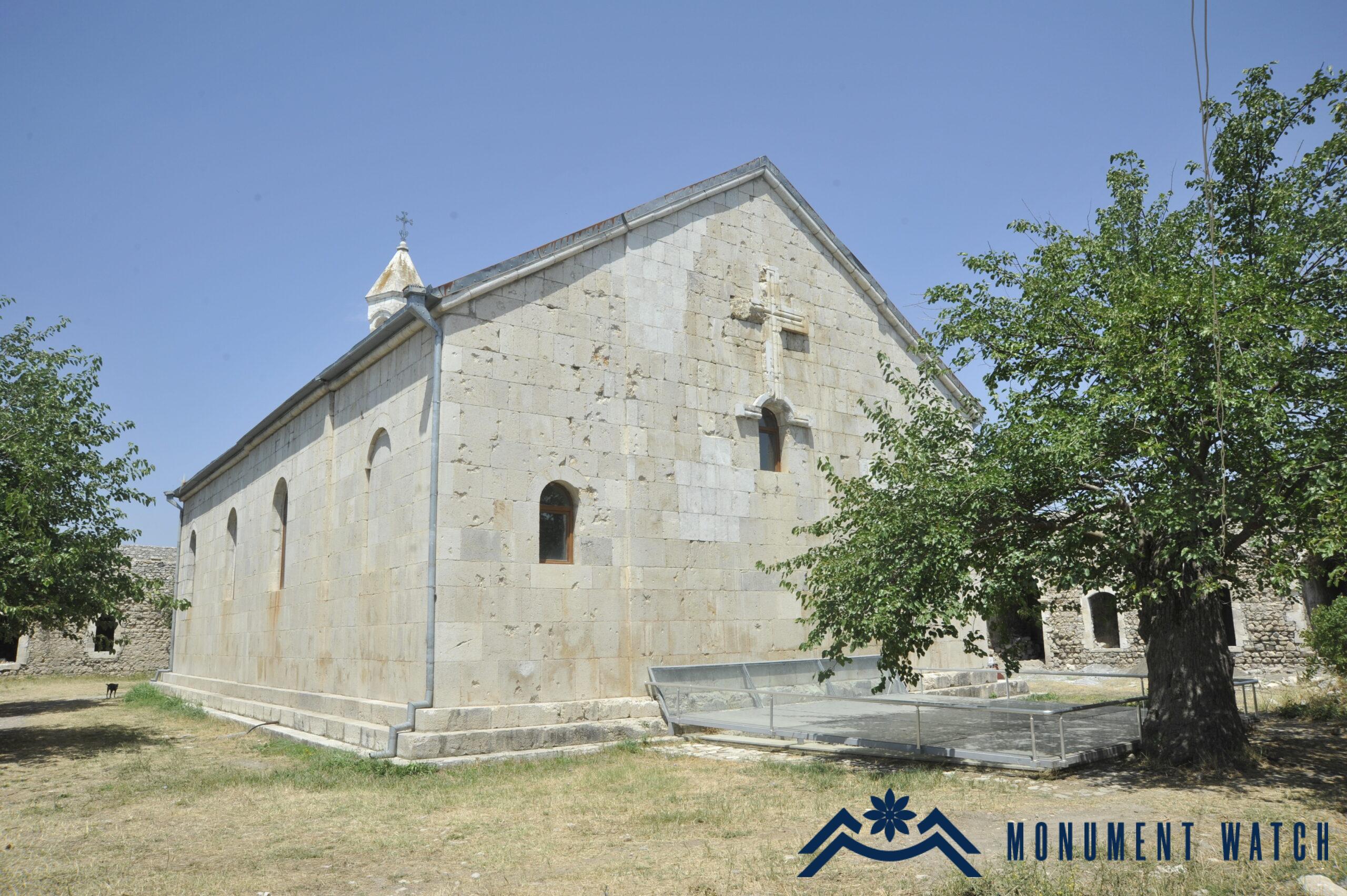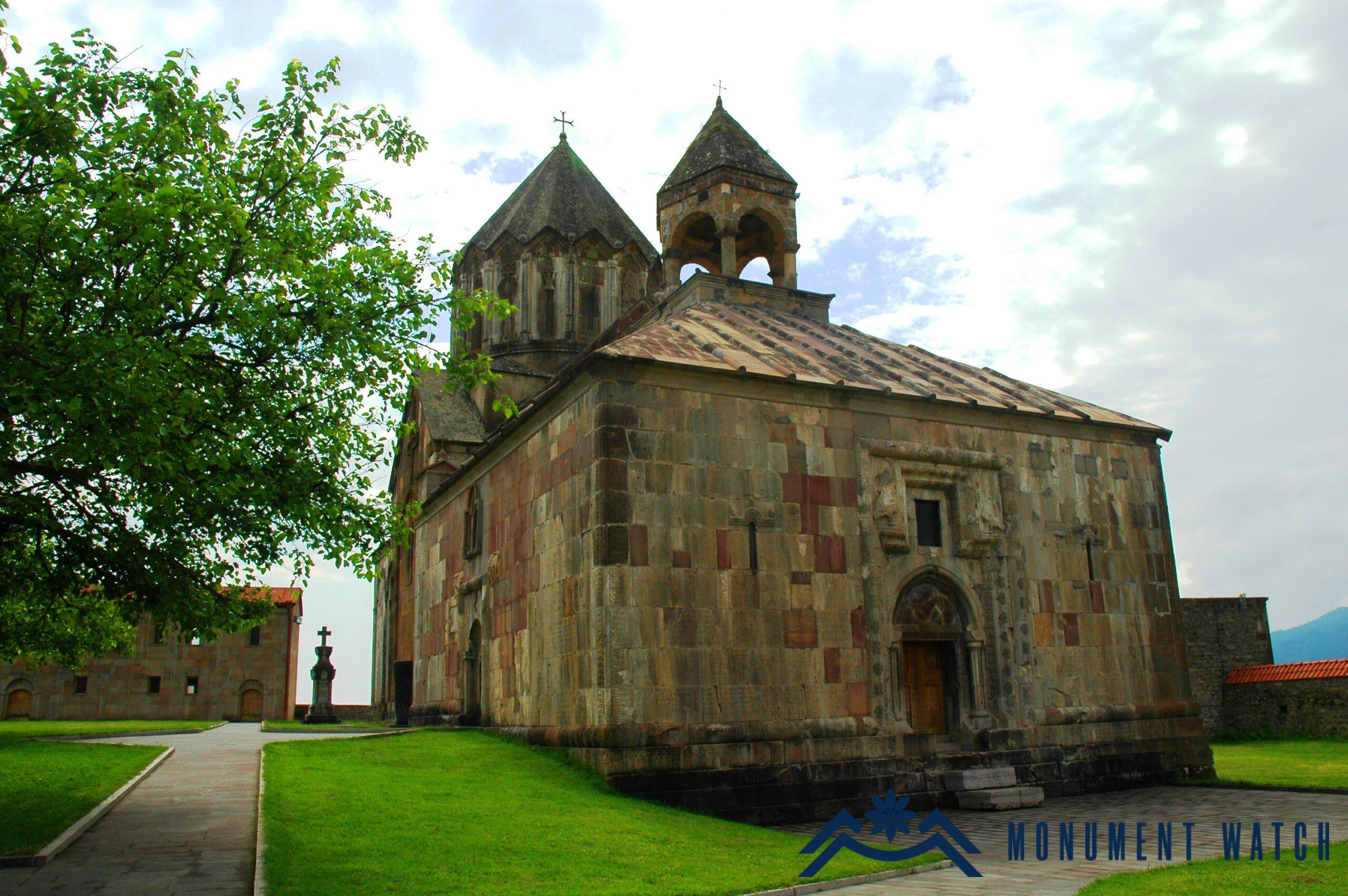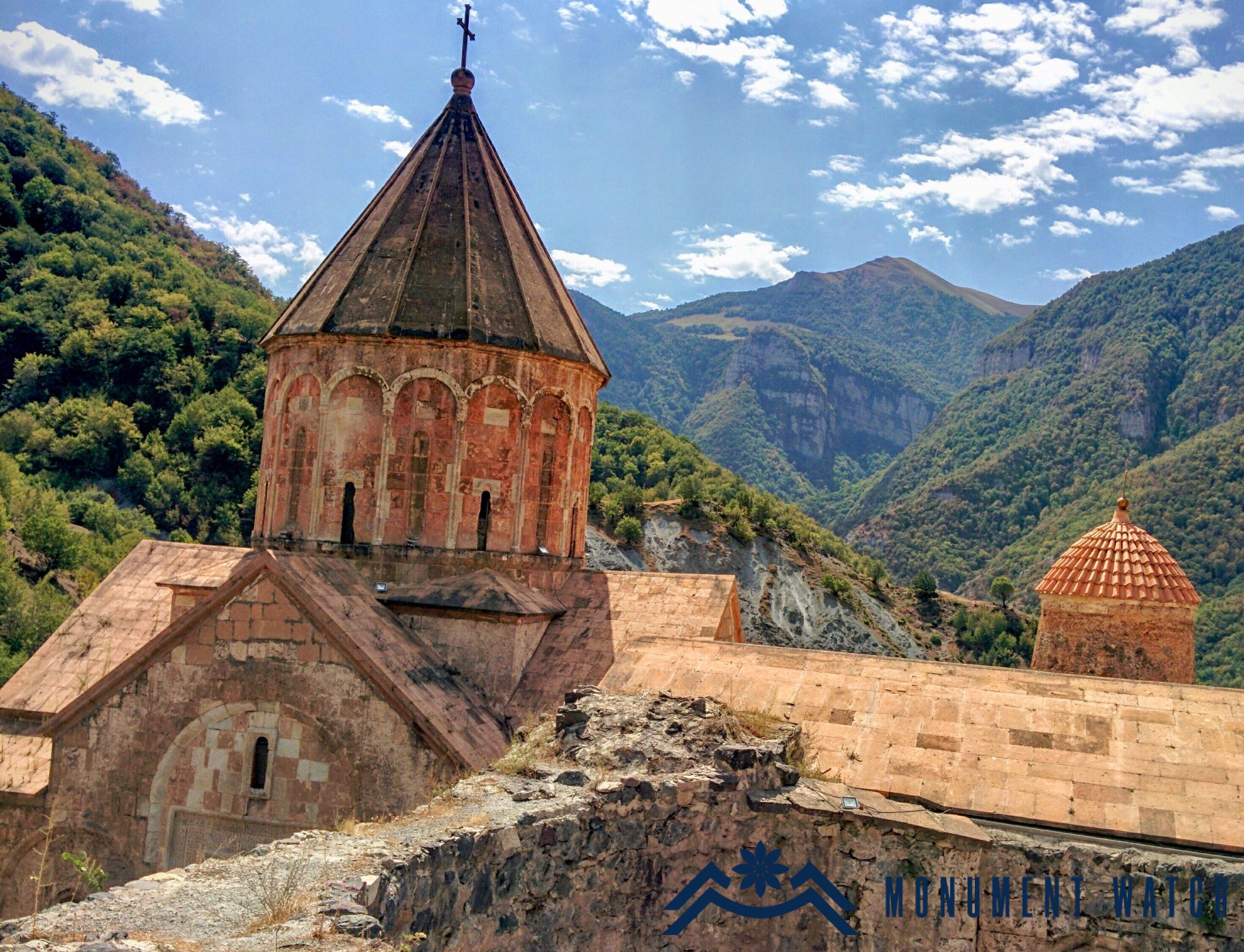Azerbaijan’s dangerous statements and initiatives
Following the military invasion on September 19-20, 2023, Azerbaijan gained control over the entirety of Artsakh. This included the historically significant medieval centers of learning, culture, and spirituality - the Gandzasar and Amaras monastic complexes - which have held profound pan-Armenian importance for centuries.
Officially, Azerbaijan promptly focused its attention on the monastery complexes of Gandzasar and Amaras, proclaiming that they had 'liberated' these renowned Caucasian Albanian sanctuaries and places of pilgrimage. Following this announcement, the Azerbaijani propaganda apparatus initiated the widespread dissemination of misleading and propagandistic narratives about these monasteries, often devoid of factual accuracy and contradicting established scholarship. The Ministry of Culture led the charge in this endeavor, followed by a wide array of media outlets and self-proclaimed experts who joined in promulgating these narratives (Another machination of the Armenians or how Albanian churches became Armenian https://www.youtube.com/watch?v=3BWflQS8rqo).
On October 6, 2023, an extensive video program was aired on a Baku TV channel, primarily focusing on the monastic complexes of Gandzasar, Amaras, and Dadivank. The program asserted that following the 'liberation' of these monasteries, the global scientific community, especially historians, would have the chance to witness and expose what was referred to as 'Armenian fraud' on-site.
However, within this video, the remarks made by Venerable Alexiy Nikonorov, the Baku Diocesan Secretary of the official Russian Orthodox Church, have raised evident perplexity. Nikonorov, when discussing the Gandzasar and Amaras monastic complexes, stated that they represent prime examples of Caucasian Albanian architecture and have perpetually served as spiritual and cultural centers for Caucasian Albania. The Russian clergyman, while notably omitting any reference to the actual affiliation of the monasteries, appeared to distort and manipulate historical facts. Furthermore, he made another highly contentious and intolerant statement, asserting that 'those who felt like lords and masters there were not able to infuse those monasteries with spiritual and religious life during the past 30 years, but they were capable only of producing Gandzasar brandy rated at 3 stars.
Such an overtly intolerant and extremist statement understandably raises numerous questions, not only about the individual making the remarks but also regarding the stance and position of the Russian Orthodox Church itself.
Rizvan Huseinov and Ulvia Hajiyeva put forth even more alarming assertions, suggesting that the outward appearance and embellishments of the Gandzasar and Amaras monastery complexes underwent substantial alterations by Armenians over the past two centuries, following the transfer of these monasteries to the Armenian Apostolic Church. They contended that these changes were carried out with the intent to conceal the monasteries' true nature. The Azerbaijani side asserted that they had documented all such modifications and alleged deceptions. It was also pointed out that Azerbaijani researchers are currently gaining access to these sites, allowing them the opportunity to conduct their investigations and studies.
These statements undeniably pose a significant threat to the preservation of the monastic complexes. The promotion of de-Armenianization narratives may potentially lead to the distortion of the authentic architecture of these monasteries, risking the erasure of hundreds of Armenian inscriptions, crosses, and cross compositions.


